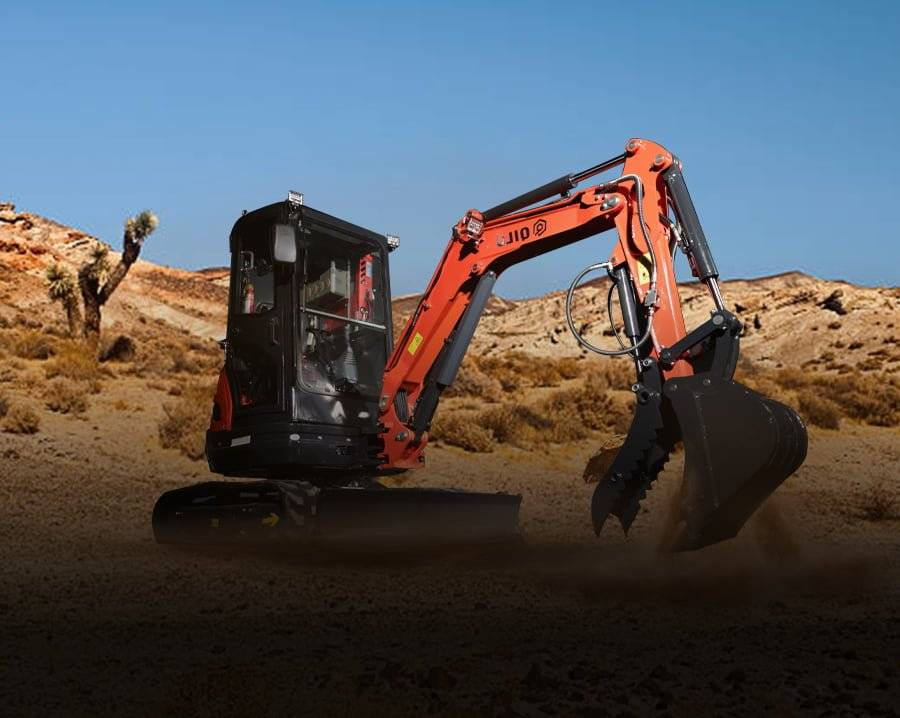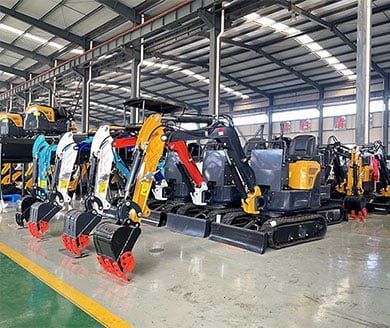E-mail: alamat email qilumachinery.com WhatsApp: 8618266768780
Ekskavator Besar Dijual: Panduan Lengkap
Introduction to Large Excavators

Large excavator for sale: A comprehensive guide.Large excavators are powerhouse machines essential in construction, mining, and large-scale landscaping projects. They offer unparalleled strength, efficiency, and the ability to handle tasks that smaller machines cannot. This guide explores the ins and outs of large excavators, helping potential buyers make informed decisions.
Types of Large Excavators
When it comes to large excavators, there’s a variety to choose from, each suited to specific tasks:
- Crawler Excavators: Known for their track system, these excavators are stable on uneven surfaces, making them perfect for mining and heavy-duty construction sites.
- Ekskavator Beroda: These are versatile, moving easily across hard surfaces, ideal for urban construction or projects requiring frequent relocation.
- Long-Reach Excavators: With extended arms, these machines can dig deep or far from their base, suitable for dredging or demolition.
Key Features to Look for When Buying a Large Excavator
Before purchasing a large excavator, consider:
- Tenaga Mesin: Determines the machine’s capability to handle heavy loads.
- Sistem Hidrolik: A robust system ensures efficient operation and versatility in tasks.
- Kapasitas Bucket: The size of the bucket affects how much material can be moved at once.
| Fitur | Keterangan |
|---|---|
| Tenaga Mesin | Determines the machine’s capability to handle heavy loads. The more powerful the engine, the heavier the load it can manage. |
| Sistem Hidrolik | A robust hydraulic system ensures efficient operation and versatility in tasks, allowing for smoother and more precise movements. |
| Kapasitas Bucket | The size of the bucket affects how much material can be moved at once. Larger buckets increase efficiency by moving more material per cycle. |
Top Manufacturers of Large Excavators
Several manufacturers stand out in the market:
- Ulat: Known for durability and technology.
- Komatsu: Offers innovative and eco-friendly models.
- Qilu: Renowned for safety and efficiency.
Buying New vs. Used Large Excavators
Deciding between a new or used excavator depends on budget, usage, and preference:
- Advantages of Buying New: Latest technology and warranty coverage.
- Benefits of Buying Used: Lower cost and immediate availability.
Maintenance Tips for Large Excavators
Proper maintenance extends the life of your excavator:
- Regular Checks and Services: Schedule routine inspections.
- Handling Wear and Tear: Replace parts as needed to avoid major breakdowns.
Safety Considerations When Operating Large Excavators
Safety cannot be overstated:
- Training and Certifications: Ensure operators are properly trained.
- On-Site Safety Protocols: Implement safety measures to prevent accidents.
Latest Trends in Large Excavator Technology
Innovation continues with:
- Automation and Remote Control: Increases safety and efficiency.
- Eco-friendly Models: Reduce environmental impact.
Costs Involved in Purchasing a Large Excavator
Consider both the initial and ongoing costs:
- Initial Purchase Price: Can be significant, especially for new models.
- Biaya Operasional: Include fuel, maintenance, and repairs.
Financing Options for Large Excavators
Various financing options are available:
- Leasing vs. Buying: Leasing can reduce upfront costs.
- Loan Options: Many institutions offer loans for equipment purchases.
Where to Find Large Excavators for Sale

Large excavators are available through:
- Online Marketplaces: Convenient for comparing options.
- Dealerships: Offer personalized service and inspections.
Tips for Inspecting a Large Excavator Before Purchase
Before sealing the deal:
- Apa yang Perlu Diperhatikan: Check for signs of wear, damage, and ensure all systems function properly.
- Common Issues: Be aware of any red flags that could indicate serious problems.
Case Studies: Successful Uses of Large Excavators
Large excavators have been pivotal in:
- Construction Projects: Streamlining operations and increasing efficiency.
- Mining Operations: Enhancing productivity and safety.
Kesimpulan:Large Excavator for Sale
Investing in a large excavator is a significant decision that can impact the success of your projects. By considering the types, key features, and maintenance tips outlined in this guide, you can choose the right machine for your needs.
Tanya Jawab Umum
What is the average lifespan of a large penggali?
The average lifespan of a large excavator ranges from 7 to 10 years, depending on usage, maintenance, and the operating environment. Regular maintenance and proper handling can extend this lifespan significantly.
Can large excavators be used for residential projects?
Yes, large excavators can be used for residential projects, especially those requiring significant earthmoving, such as pool installations or large landscaping projects. However, it’s essential to consider the project’s scale and the space available to operate such large machinery.
How often should a large excavator be serviced?
Large excavators should undergo routine maintenance every 250-500 hours of operation. This includes oil changes, hydraulic system checks, and filter replacements. More comprehensive services, such as engine and hydraulic system inspections, are recommended annually.
What are the environmental impacts of using large excavators?
The environmental impacts include emissions from diesel engines and potential disturbance to land and ecosystems. However, manufacturers are increasingly focusing on producing eco-friendly models with lower emissions and better fuel efficiency to mitigate these impacts.
How does automation in excavators enhance safety?
Automation in excavators enhances safety by reducing the need for operators to be physically present in hazardous environments. Automated systems can also improve precision and reduce the likelihood of operator error, further enhancing safety on construction sites.
Tentang Kami
Shandong Qilu Industrial Co., Ltd. adalah produsen dan eksportir profesional yang mengintegrasikan pengembangan dan produksi ekskavator, loader, dan traktor. Kami memberikan layanan terbaik, tentu saja.
Tulisan Terbaru
Video demo
-1.png)
Hubungi Kami Hari Ini!
Ada pertanyaan, penawaran, atau permintaan? Klik tombol untuk mengirim pesan.
Qilu Industrial akan selalu siap membantu.
